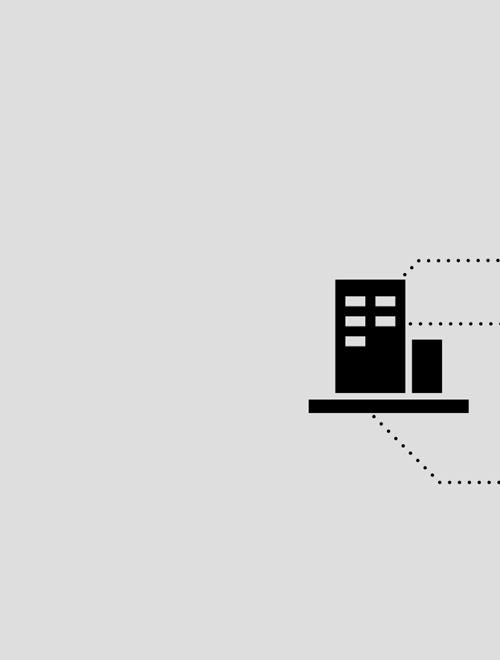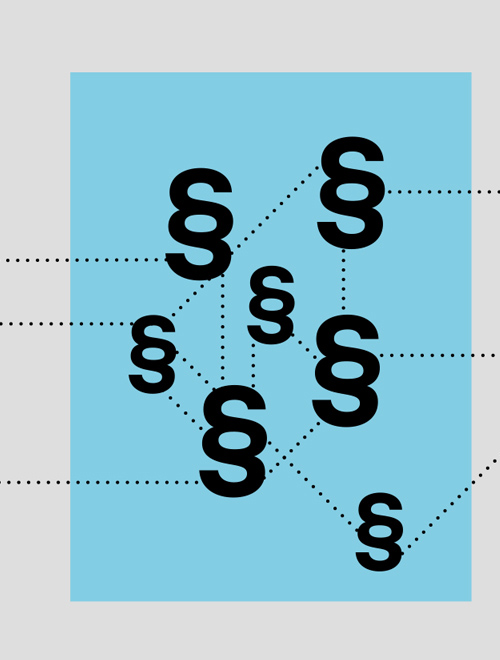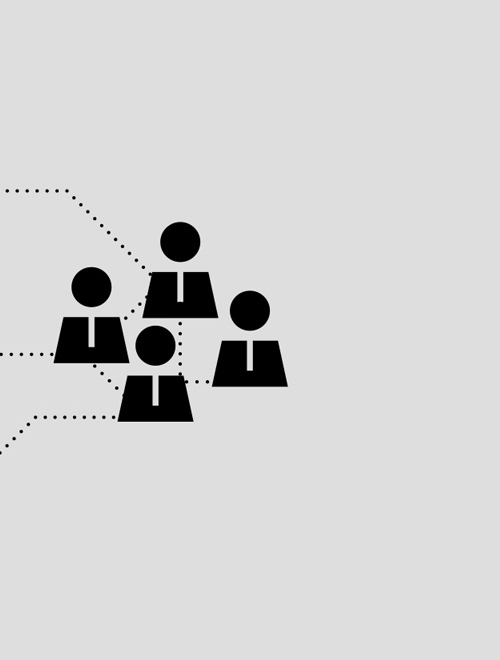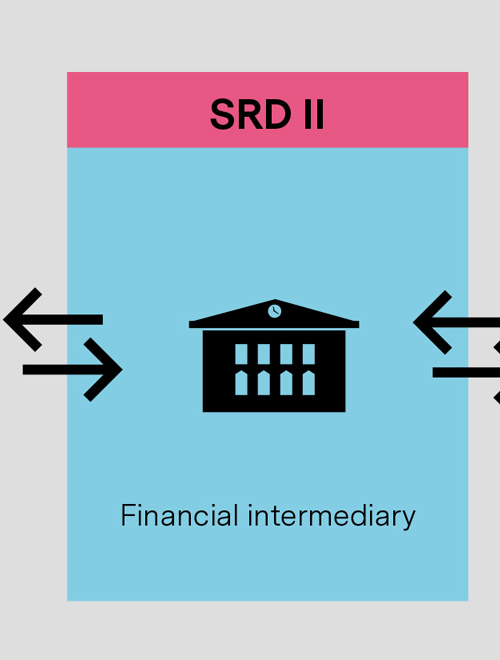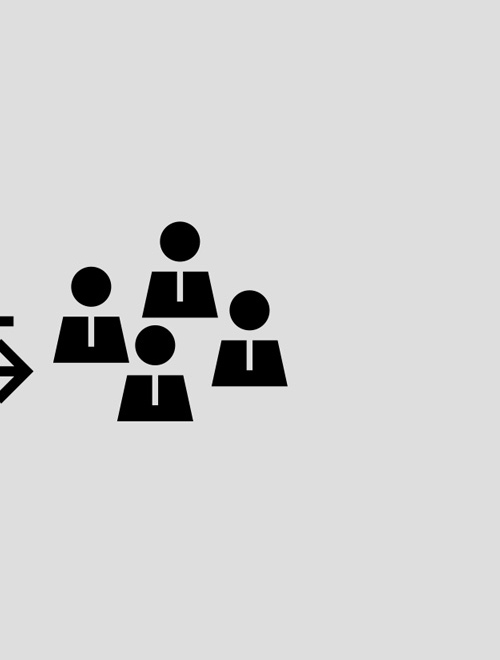The new Shareholder Rights Directive 2 (SRD II) aims to strengthen investor rights and improve communication between listed companies and their shareholders.
Illustration: changes before/after
Frequently asked questions (FAQ)
What is this about?
The new Directive requires intermediaries to transmit shareholder information to listed companies established in the EU/EEA for the purpose of shareholder identification. Furthermore, this type of company has the right to provide its shareholders with information to facilitate the exercising of shareholders’ rights.
Although SRD II is a European directive, it also imposes obligations on financial intermediaries (such as banks) from third countries when they provide services related to equities for shareholders of listed companies. Swiss financial intermediaries are therefore also required to implement SRD II.
Brief explanation of the Directive
On May 17, 2017, the EU issued the Shareholder Rights Directive II (EU) 2017/828 (hereinafter referred to as SRD II or “Directive”). SRD II fundamentally supplements and revises the existing EU Directive 2007/36/EC and introduces changes for shareholders of listed companies domiciled in the EU or EEA (hereinafter referred to as “Company”). The aim of SRD II is to improve the long-term participation of shareholders and to facilitate the exercising of shareholder rights and cross-border information. The measures implementing the new requirements also affect financial intermediaries domiciled outside the EU if they hold or manage equities from such companies for their clients. These regulations also apply to Vontobel and our clients, should the client hold such securities in the securities custody account.
Comparison of changes
BeforeCommon practice up to 9/2/2020 |
AfterAs of 9/3/2020, after implementation of the SRD II |
|||||
|
|
|
|
|
|
|
|
|
Company |
Information flow regulated and handled differently, depending on the country, company, and type of business |
Clients, shareholders |
Company |
Information flow EU/EEA-wide unified basic regulation, with clearly defined, country-specific leeway |
Clients, shareholders |
|
Caption: The illustration shows schematically how SRD II changes the flow of information between a company and its shareholders.
Implementation deadline and applicability
Implementing Regulation (EU) 2018/1212 specifies the minimum requirements for identifying shareholders and facilitating the exercising of shareholder rights. Notwithstanding the deadline for implementing SRD II in national law, these requirements shall apply from September 3, 2020. The Implementing Regulation is directly applicable in each member state.
The regulatory requirements with regard to transparency and disclosure obligations for institutional investors, asset managers, and proxy advisers, as well as the requirements regarding the right of shareholders to be involved, have been in force since June 10, 2019.
FAQ – overview of contents
Basic information on the Shareholder Rights Directive 2 (SRD II)
What is the objective of SRD II?
What does SRD II mean for financial intermediaries and who is affected?
When must the provisions be implemented by?
Will sanctions be imposed if the regulation is not complied with?
Scope
What markets and products are affected by SRD II?
What companies are affected by SRD II?
In which countries are companies/issuers affected by the changes?
Shareholder identification disclosure
What are the principal operational implications for Vontobel?
What shareholder data is passed on to the issuer?
Is there a threshold for disclosure of shareholder identity?
Can clients waive disclosure of their shareholder information?
Is it possible for clients to incur any costs?
General meetings / company events / proxy voting
What information will the shareholder receive from the company?
Are there any changes regarding other company events?
Is it possible for clients to incur any costs?
Have you got questions?
As a Vontobel client, you are very welcome to contact your relationship manager.
FAQ – answered by our team
Part 1: Basic information on the Shareholder Rights Directive 2 (SRD II)
What is the objective of SRD II?
SRD II is a European Union directive on shareholder rights, which is intended to strengthen the corporate governance of listed companies based in the EU/EEA. Alongside more effective integration of shareholders in the company, facilitating the exercising of shareholder rights and improving access to company information in cross-border situations take center stage.
What does SRD II mean for financial intermediaries and who is affected?
SRD II contains provisions for financial intermediaries entrusted with the custody/administration of securities or the management of securities accounts on behalf of the relevant shareholders (or other intermediaries). Of decisive importance in this are the issuer’s domicile and registration in the EU/EEA and that its equities are traded on a market regulated in the EU/EEA area.
SRD II obliges intermediaries (such as Bank Vontobel AG) to ensure the transmission of information along the chain of custodians in order to facilitate the exercising of shareholder rights between the company and the shareholder.
When must the provisions be implemented by?
The regulations concerning the identification of shareholders and the facilitation of the exercising of shareholders’ rights, as well as the Implementing Regulation (EU 2018/1212), come into force on September 3, 2020.
Will sanctions be imposed if the regulation is not complied with?
The Directive mentions fines and penalties for issuers and intermediaries that do not comply with the regulations. It is up to each EU member state to design sanctions for violations of national implementation regulations.
Part 2: Scope
What markets and products are affected by SRD II?
SRD II applies primarily to voting equities issued by companies domiciled in an EU/EEA member state and which are admitted to trading on a regulated market within the EEA. This also includes securities with multiple listings.
The Directive therefore has a global impact on both intermediaries and shareholders holding the relevant EU equities.
The national law applicable to intermediaries is determined by the member state in which the respective company is domiciled. Due to the different implementation of the Directive in the member states, it is possible that the rules will diverge from one other.
What companies are affected by SRD II?
- Companies with their registered office in the EU/EEA and whose equities are admitted to a regulated market situated or operating in an EU member state;
- intermediaries, including intermediaries domiciled outside the EU/EEA, that are an investment firm, a credit institution, or a Central Securities Depository (CSD), which provide services involving equity custody and/or management or security account maintenance for shareholders of securities covered by the scope;
- institutional investors and asset managers who invest in relevant equities.
In which countries are companies/issuers affected by the changes?
Companies must be domiciled in the EU/EEA and their equities must be listed on the stock exchange of an EU member state. This includes the following countries.
A–F |
G–L |
M–Z |
| Austria | Germany | Malta |
| Belgium | Greece | Netherlands |
| Bulgaria | Hungary | Norway |
| Croatia | Iceland | Poland |
| Cyprus | Ireland | Portugal |
| Czech Republic | Italy | Romania |
| Denmark | Latvia | Slovak Republic |
| Estonia | Liechtenstein | Slovenia |
| Finland | Lithuania | Spain |
| France | Luxembourg | Sweden |
| United Kingdom* | ||
| *Until December 31, 2020 |
Part 3: Shareholder identification disclosure
What are the principal operational implications for Vontobel?
As an intermediary, Vontobel will receive shareholder identification requests from an issuer or a third party appointed by the issuer via the intermediary chain.
Vontobel is required to send the necessary information on shareholder identity directly to the issuer or to the third party designated by the issuer (for instance, its principal bank). All information must be submitted within the time limits and in the formats specified in the Implementing Regulation.
What shareholder data is passed on to the issuer?
At the request and demand of the company, Vontobel must provide the following information (if available):
- name(s) and address of the shareholder;
- unique identifier (such as passport number for natural persons or the registration number / Legal Entity Identifier (LEI) for legal entities);
- the number of equities held at the requested disclosure date (record date);
- if requested: the categories or classes of equities held and/or the date from which the equities have been held.
Is there a threshold for disclosure of shareholder identity?
The individual EU member states may stipulate that companies domiciled in that country may require shareholder identification information only in respect of shareholders holding more than a certain percentage of equities or voting rights. This threshold may not exceed 0.5 percent.
Realization of the threshold has not yet been completed in all cases by the member states; for this reason, it is not known at this stage which member states will introduce a threshold based on SRD II.
Can clients waive disclosure of their shareholder information?
As an intermediary, Vontobel is obliged to transmit the relevant data if a company requests identification of its shareholders. As a result, clients cannot choose not to disclose the required information to a requesting company.
Information transmission within the scope of SRD II must be carried out in compliance with the relevant data protection regulations and retention periods. It should be noted that, in the course of providing the services, a disclosure obligation to other involved parties or domestic/foreign authorities may be required under foreign law.
Clients have the option to invest in other assets that do not fall under the scope of SRD II.
Is it possible for clients to incur any costs?
In principle, yes. SRD II stipulates that expenses can be charged by all involved parties.
Part 4: General meetings / company events / proxy voting
What information will the shareholder receive from the company?
On behalf of the client, Vontobel will ensure that clients for whom Vontobel holds or administers equities have access to information about companies’ forthcoming general meetings.
Similarly, shareholders will be able to exercise their shareholder rights (for example, the right to be involved, to participate in the General Meeting, and so on) and should have access to the procedures for shareholder measures.
The client is free to waive the exercising of their rights.
Vontobel is not liable for the completeness, correctness, or the timely provision or forwarding of the information that Vontobel receives from the company, involved parties, or other third parties or transmits to them about the instruments, facilities, or platforms that it makes available.
Are there any changes regarding other company events?
There will be no change to other corporate actions or, as the case may be, corporate events. This includes dividends, interest payments, redemptions, mergers, splits, spin-offs, capital increases, security equivalences, and so on.
Is it possible for clients to incur any costs?
Intermediaries (in the chain of custodians) may charge for the transmission and provision of such information. Hence there is a possibility that costs may be passed on to the client.







